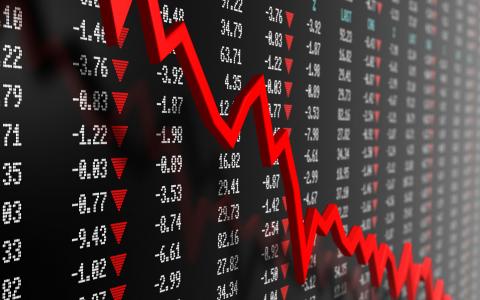
(Bloomberg) Former Federal Reserve Chairman Ben Bernanke isn’t worried about the recent selloff in U.S. equities. In fact, he isn’t even surprised.
“I don’t think this is way out of the range of relatively normal behavior -- we have uncertainty about trade, we’ve got uncertainty about the global economy, we’ve got uncertainty about the near-term path of the U.S. economy,” Bernanke said Saturday during a panel discussion with former Treasury Secretaries Henry Paulson and Timothy Geithner. “Markets absorb that uncertainty and reflect that.”
Bernanke’s comments during the annual meeting of the American Economic Association follow a tumultuous two months for investors, during which stock prices have gyrated wildly on news about the U.S. trade war with China, the outlook for Fed interest-rate increases, and a partial U.S. government shutdown.
The S&P 500 Index jumped 3.4 percent on Friday after current Fed chief Jerome Powell hinted he’d be open to pausing the central bank’s campaign of gradual tightening by stressing policy patience amid muted pressures for higher inflation.
Even so, the benchmark index remains roughly 14 percent below its September peak as investors fret over the outlook for the economy despite still-solid U.S. jobs data and strong U.S. output growth in 2018. Bernanke dismissed the idea that the current outlook looks anything like the landscape that confronted investors during the financial crisis.
“Having our experience 10 years ago, we’re certainly not seeing those kinds of risks,” Bernanke said. “I found it actually quite surprising how benign markets were for such a long time, despite the risks of trade wars and other things that were going on.”
Asked about suggestions by some investors that the Fed’s ongoing reduction in its balance sheet has created the recent volatility in financial markets, Bernanke replied, “we’ll have to see how things evolve, but so far the evidence is fairly weak.”
Powell said Friday that he didn’t believe that balance-sheet runoff was to blame for the market turbulence.



